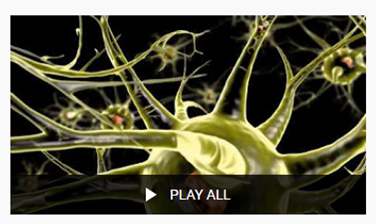Know What Your Body Needs to Treat or Prevent Illnesses
NEUROTRANSMITTERS ANALYSIS
Concepts in neurochemistry, endocrinology, technology, and therapeutic effects on complex biochemistry.
Neurotransmitters and hormones are your body's communication system. Our bodies use a communication system of Brain chemicals (neurotransmitters) and hormones that allow crosstalk to happen between parts of the body. Much like a busy interstate with cars and trucks going in different distinctions, each vehicle goes to another place but serves a purpose that contributes to the system's overall prosperity. The main central command center of communication in the body is the Brain. Our communication happens because of neurons with neurotransmitters that initiate communication to our hormones and glands that help our organs and other body systems work correctly and in balance.
When the brain-body communication system is working well, we experience good health! When brain-body communication is out of balance, and the neurotransmitter pathways (our superhighway) are not effectively signaling to our hormones and glands, we experience poor health.
Links between health concerns and neurotransmitter
in hormone levels:
Associated with HIGH levels:
Cortisol - anxiousness, poor sleep, insulin resistance, immune suppression
Dopamine - developmental problems, poor impulse control delusions out of touch with reality
Norepinephrine - hyperactivity, stress and anxiety, anger, headache, increased blood pressure, hot flashes, weight issues
Epinephrine - anxiousness, stress, insulin resistance, blood sugar dysregulation
Glutamate - anxiousness, stress, decreased mood, neurotoxicity
GABA - sadness, over innovation leading to poor cognition and memory
PEA (phenethylamine) - anxiousness, overstimulation, irregular movement, increased HPA (hypothalamus-adrenal-pituitary) reactivity
Associated with LOW levels:
Cortisol - 50, inflammation, salt craving, sensitivity to loud noise, difficulty waking up, second wind at night, daytime sleepiness, low libido, premature aging
Dopamine - lack of motivation, loss of focus, cravings, low libido
Norepinephrine - lack of focus, lack of energy, lack of motivation, decreased mood
Epinephrine - difficulty losing weight, poor sugar control, or methylation
Glutamate - mental fatigue, cognitive impairment
GABA - anxiousness, hyperactivity, sleep dysregulation
Serotonin - depressed mood, anxiousness, anger, carbohydrate cravings, sleep dysregulation, headaches, constipation, PMS/hot flashes
PEA (phenethylamine) - lack of focus, lack of attention, decreased mood, delusions, fear-like symptoms.
*The FDA has not evaluated these statements. These statements are not meant to be a diagnosis and treatment cure. These statements are meant for educational purposes only.

